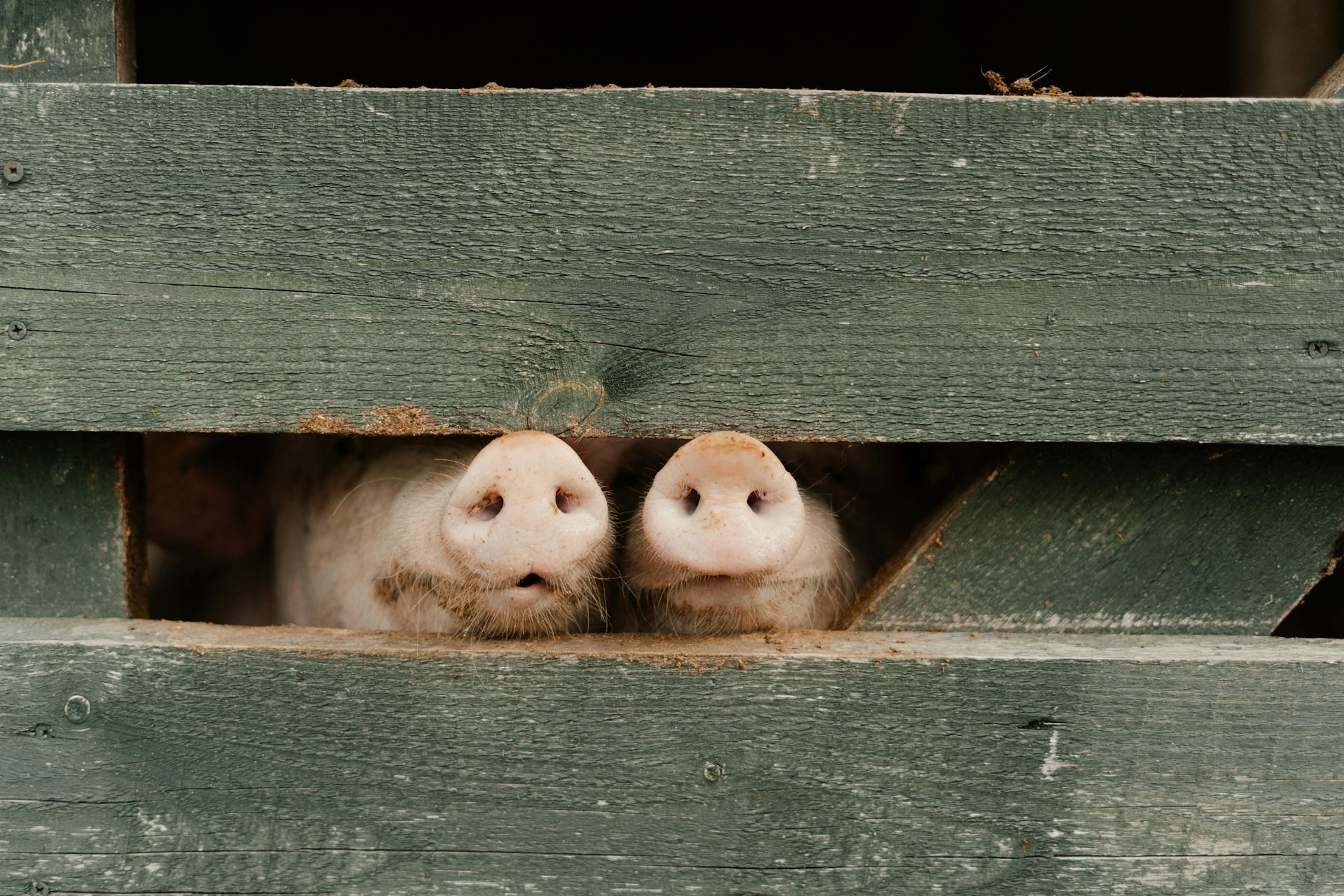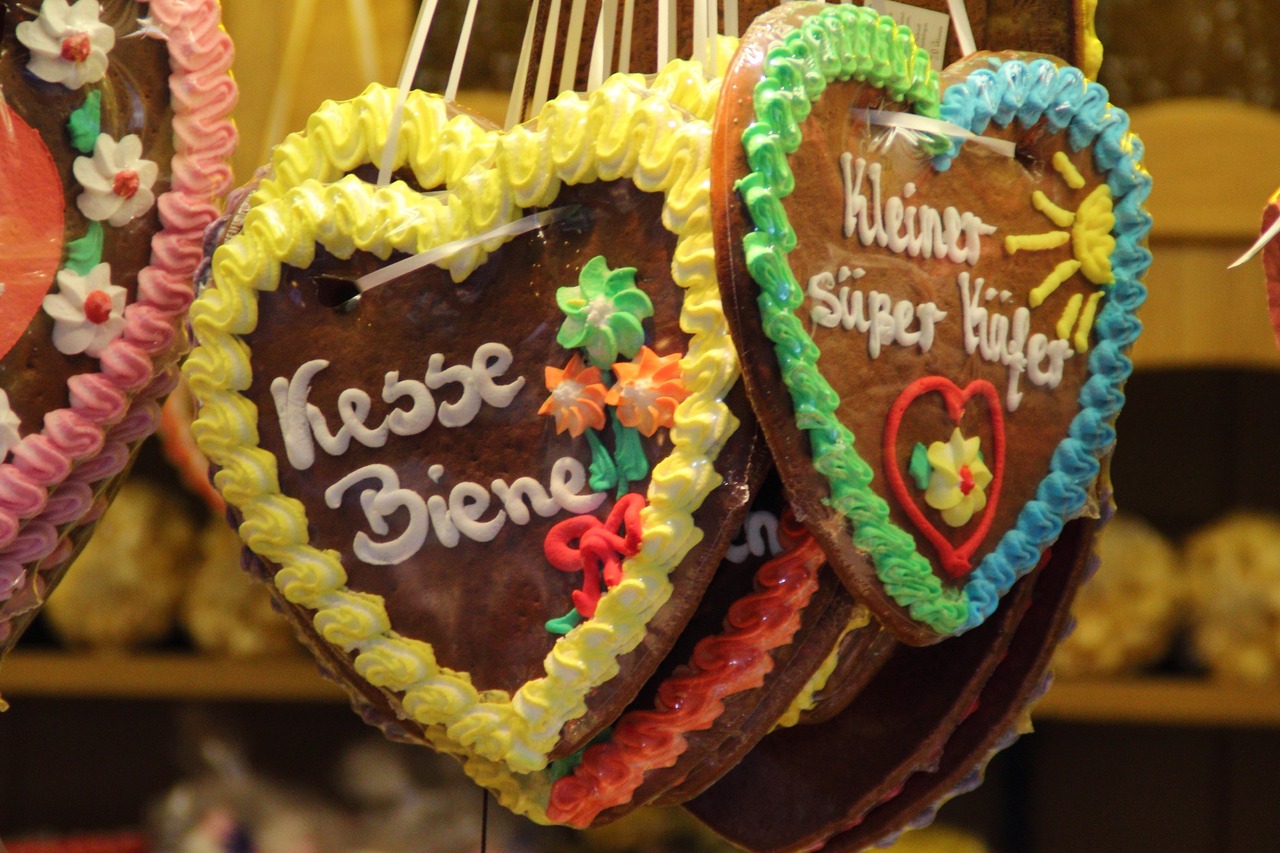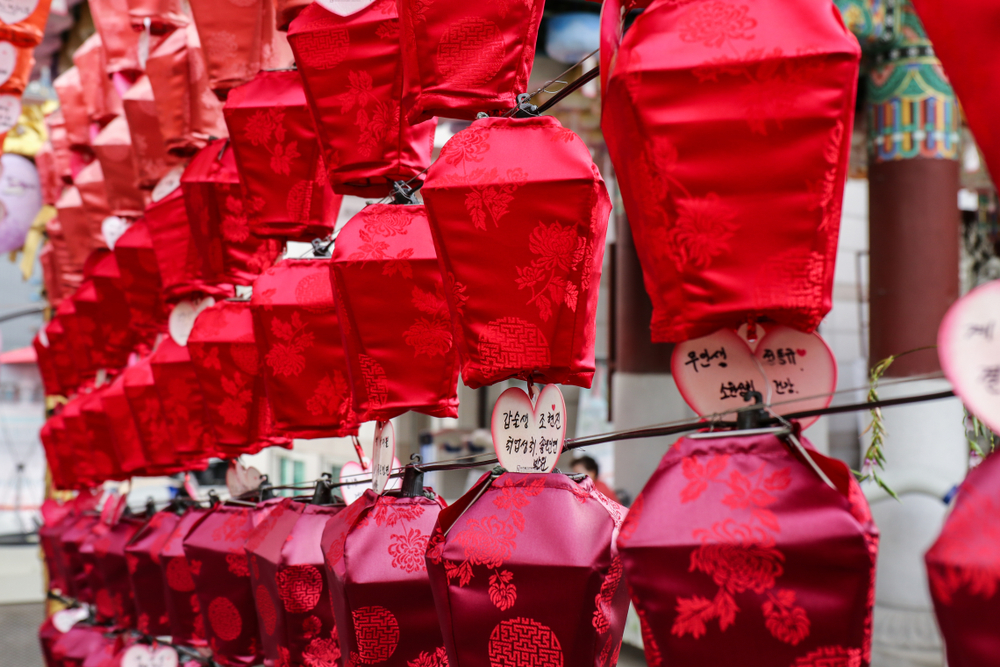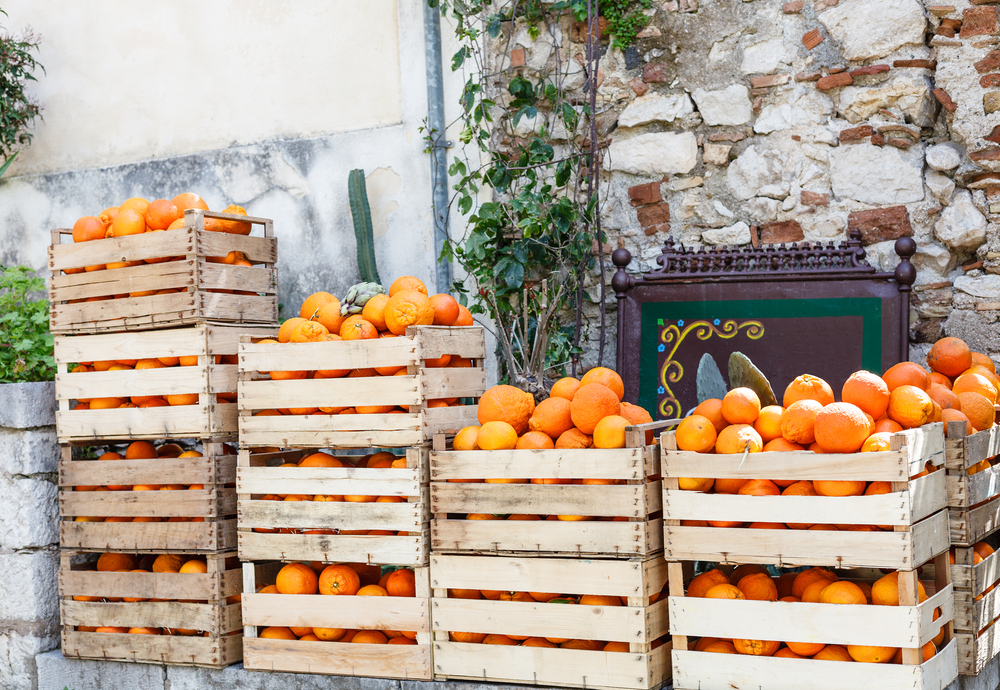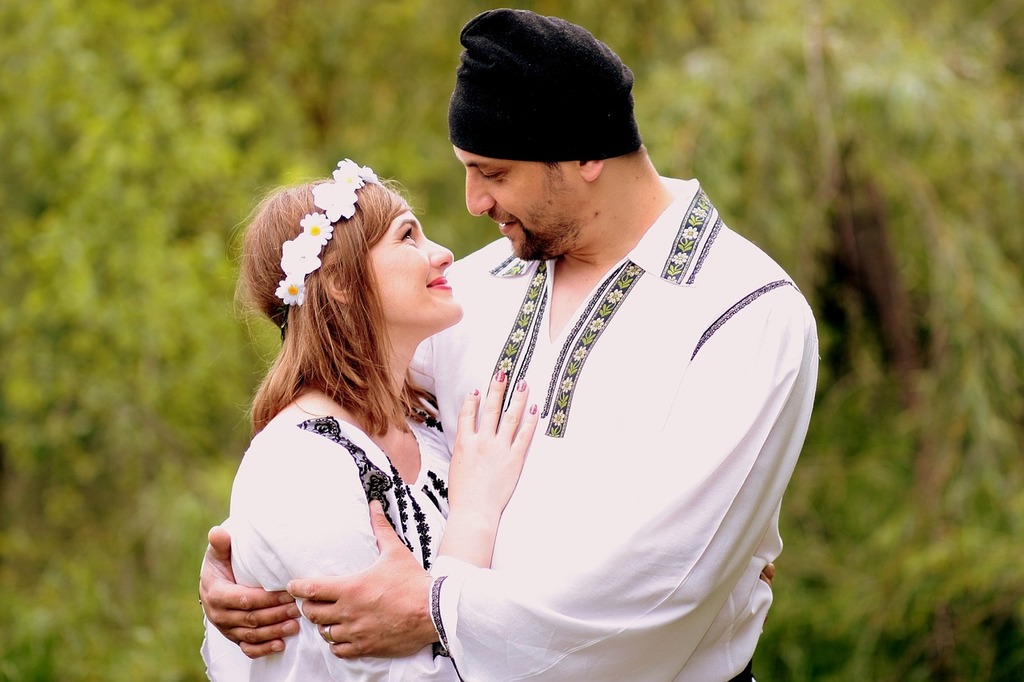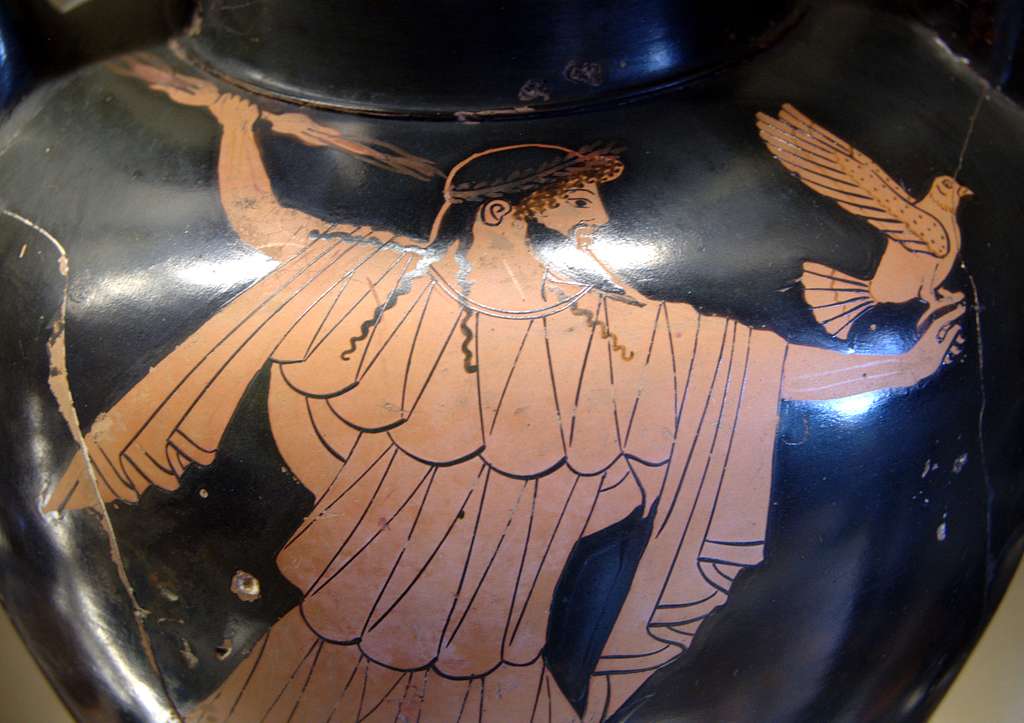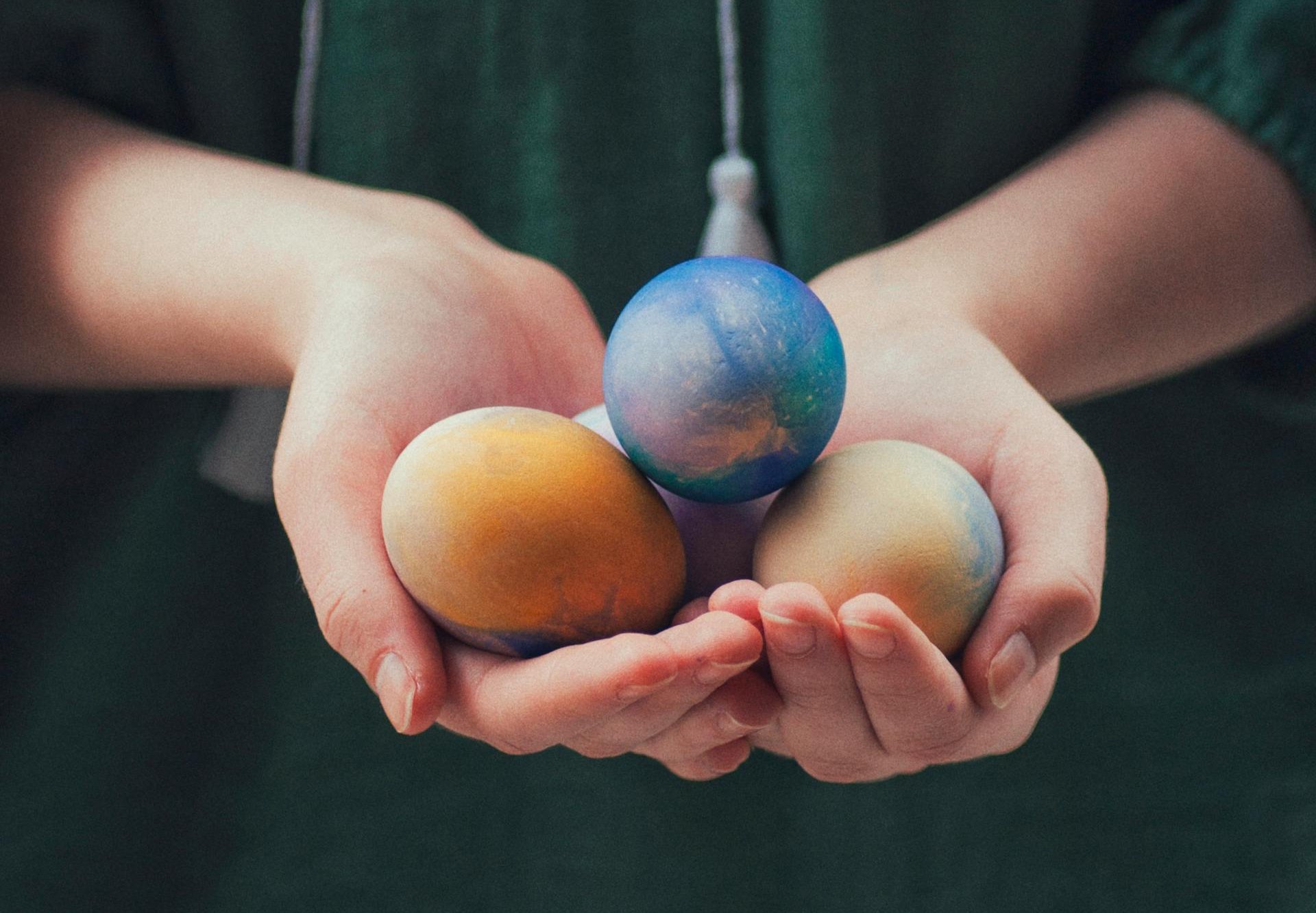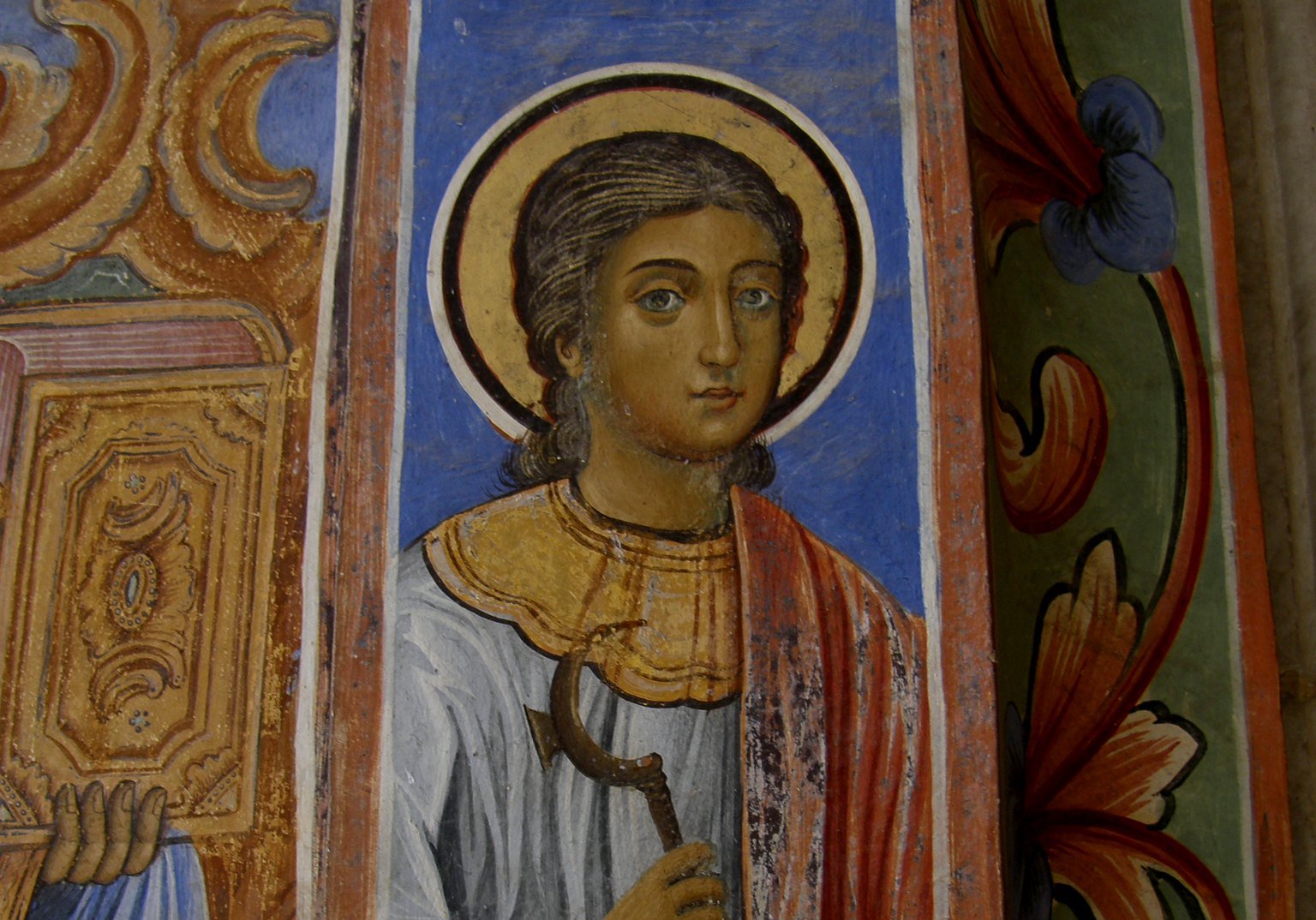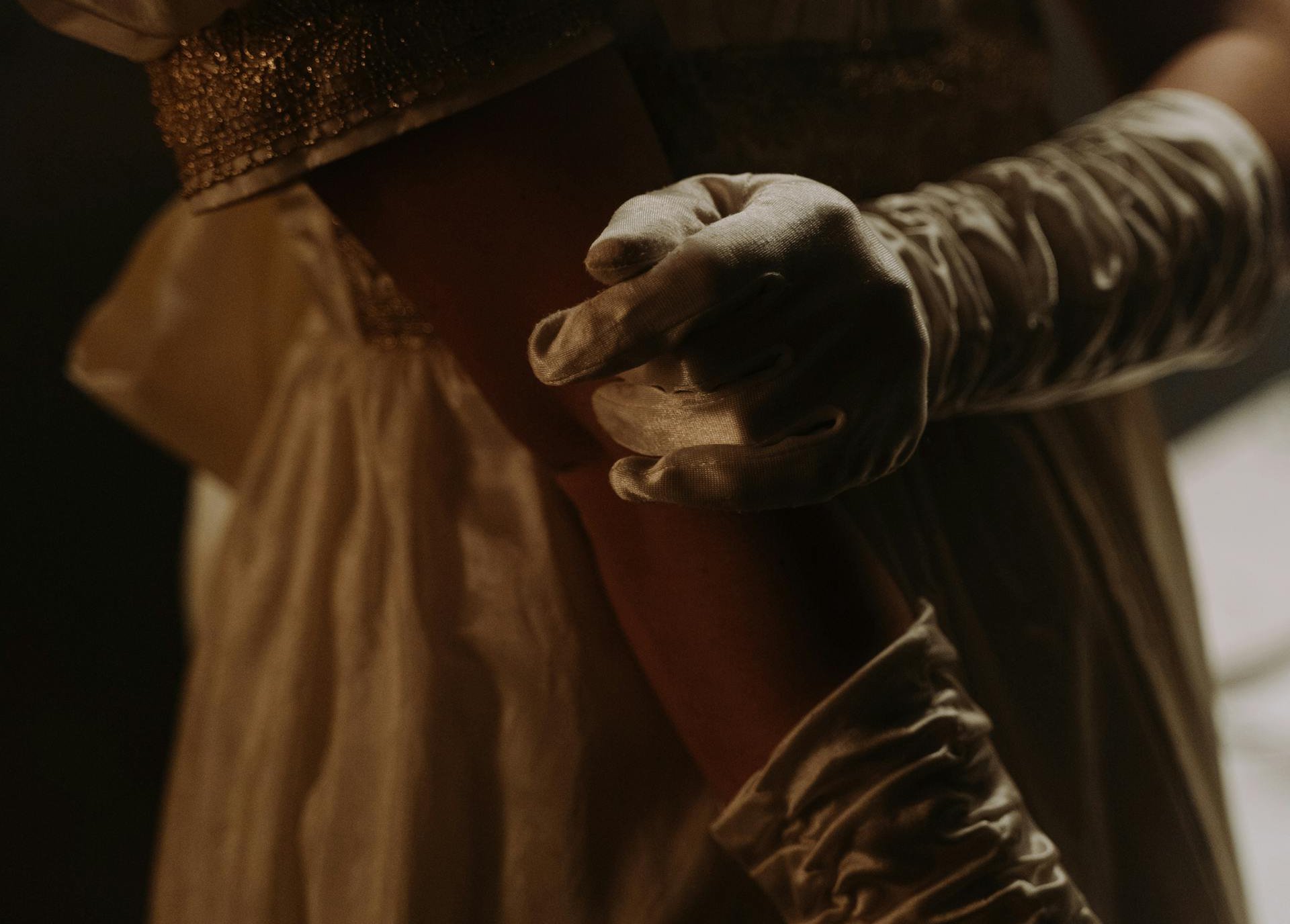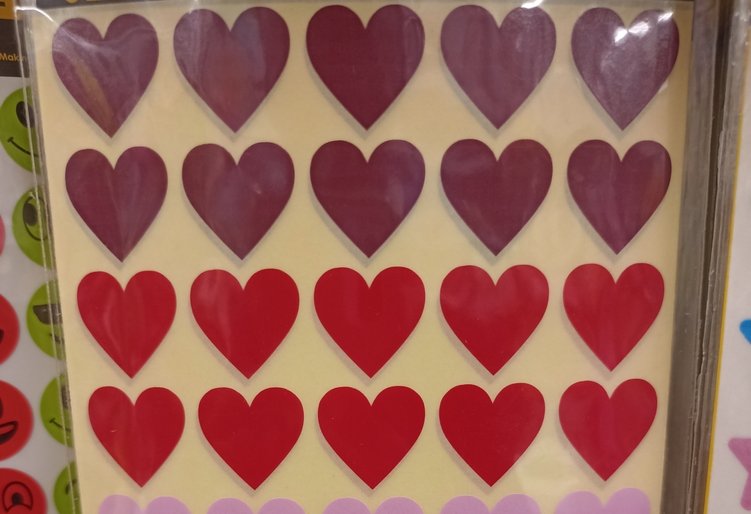Very Different V-Days
Valentine's Day isn't just chocolates and flowers. In fact, travel around the world (and back through history), and you'll discover a whole lotta Valentine's Day traditions that have nothing to do with Hallmark cards and a bouquet of red roses. Such as...
Germany
Nothing says Valentine's Day quite like a pig—are we right? Well, if we were in Germany we would be. Pigs, being a symbol of prosperity and desire in German culture, are a rather common gift between two people in love.
Germany
Besides the pig thing, many people in Germany will give their romantic partners a lebkuchen—a very big heart-shaped ginger cookie. Often, they will put a love note inside the cookie as well.
Wales
The Welsh also do things a little different—even as far as when they celebrate Welsh Valentine's Day (aka, Dydd Santes Dwynwen or St Dwynwen's Day). Forget February 14th, St Dwynwen's Day is January 25th. And then there are the spoons.
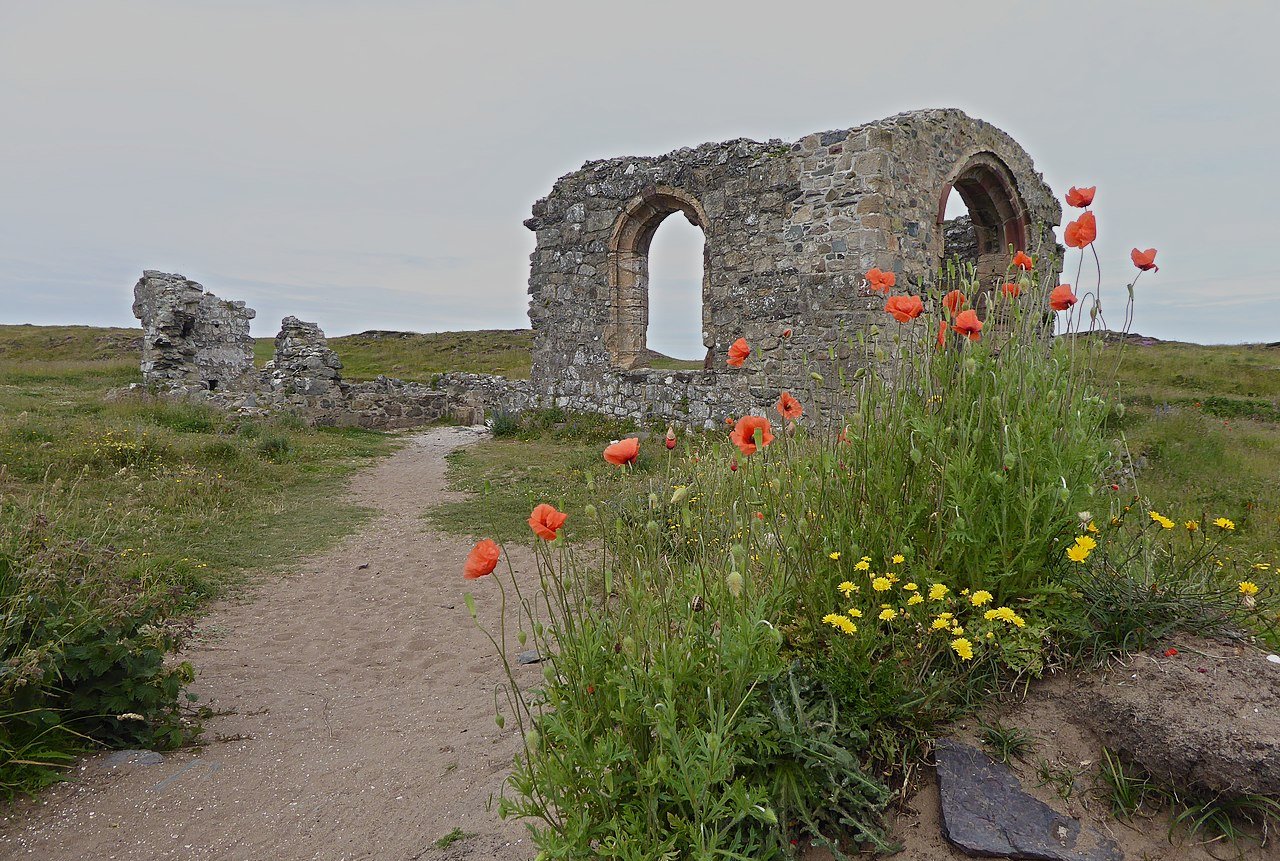 c_e_s, CC BY 2.0, Wikimedia Commons
c_e_s, CC BY 2.0, Wikimedia Commons
Wales
In a tradition that dates back all the way to the 17th century, people would give their loved ones hand-carved wooden spoons. Love spoons remain an important symbol of affection in the country to this day.
 Kmtextor, CC BY-SA 4.0, Wikimedia Commons
Kmtextor, CC BY-SA 4.0, Wikimedia Commons
Japan
Japan's custom is maybe the most similar to how we do things in North America—just with a gender role reversal. You see, rather than it being the men who drop candies and chocolates on those they love, it's the women who do so on February 14th in order to "kokuhaku" (confess their feelings).
Japan
But if you were wondering if Japanese women get any kind of reciprocity for their gestures, the answer is yes—and it comes one month later on March 14th (aka White Day), when it's the men's turn to give a gift to the ladies who gifted them the month prior.
 Masashi Yanagiya, CC BY-SA 2.0, Wikimedia Commons
Masashi Yanagiya, CC BY-SA 2.0, Wikimedia Commons
South Korea
Like in Japan, February 14th is for the women to do the chocolate giving, with the 14th of March being the day they get their gifts—also called, as in Japan, White Day. But where the South Koreans take things even farther is with the following 14th on the calendar.
South Korea
April 14th is Black Day in the country and it is on that day that all the single people can "mourn" being alone and unpartnered—which they do by dressing all in black and gathering to slurp up noodles in a black bean sauce ("jajangmyeon").
 Morning honey water, CC BY-SA 3.0, Wikimedia Commons
Morning honey water, CC BY-SA 3.0, Wikimedia Commons
Italy
Italian traditions on February 14th don't just vary from ours—but they vary from region to region as well. For example, in the Vico del Gargano region, they decorate their cities with thousands of oranges.
Italy
In Verona, they have a four-day love festival—and given that the city is the setting for one of the greatest love stories of all time (Romeo and Juliet), there is also a competition to write a letter to Juliet.
 Tpenton00, CC BY-SA 4.0, Wikimedia Commons
Tpenton00, CC BY-SA 4.0, Wikimedia Commons
Italy
We're not sure if this one is region specific, but there are some very superstitious women in Italy who believe that the first man they see on Valentine's Day will become their husband.
Philippines
In the Philippines, February 14th isn't as much about telling your wife or husband you love them, as it is becoming a husband or a wife. Strained wordplay aside, what we're trying to say is that in the Philippines it is customary for hundreds, if not thousands, of couples to get married on Valentine's day in mass weddings.
Philippines
Given that these mass ceremonies are state-sponsored, it's a great way for a couple who can't afford their own big wedding to get married. Everything is provided for them—including the rings.
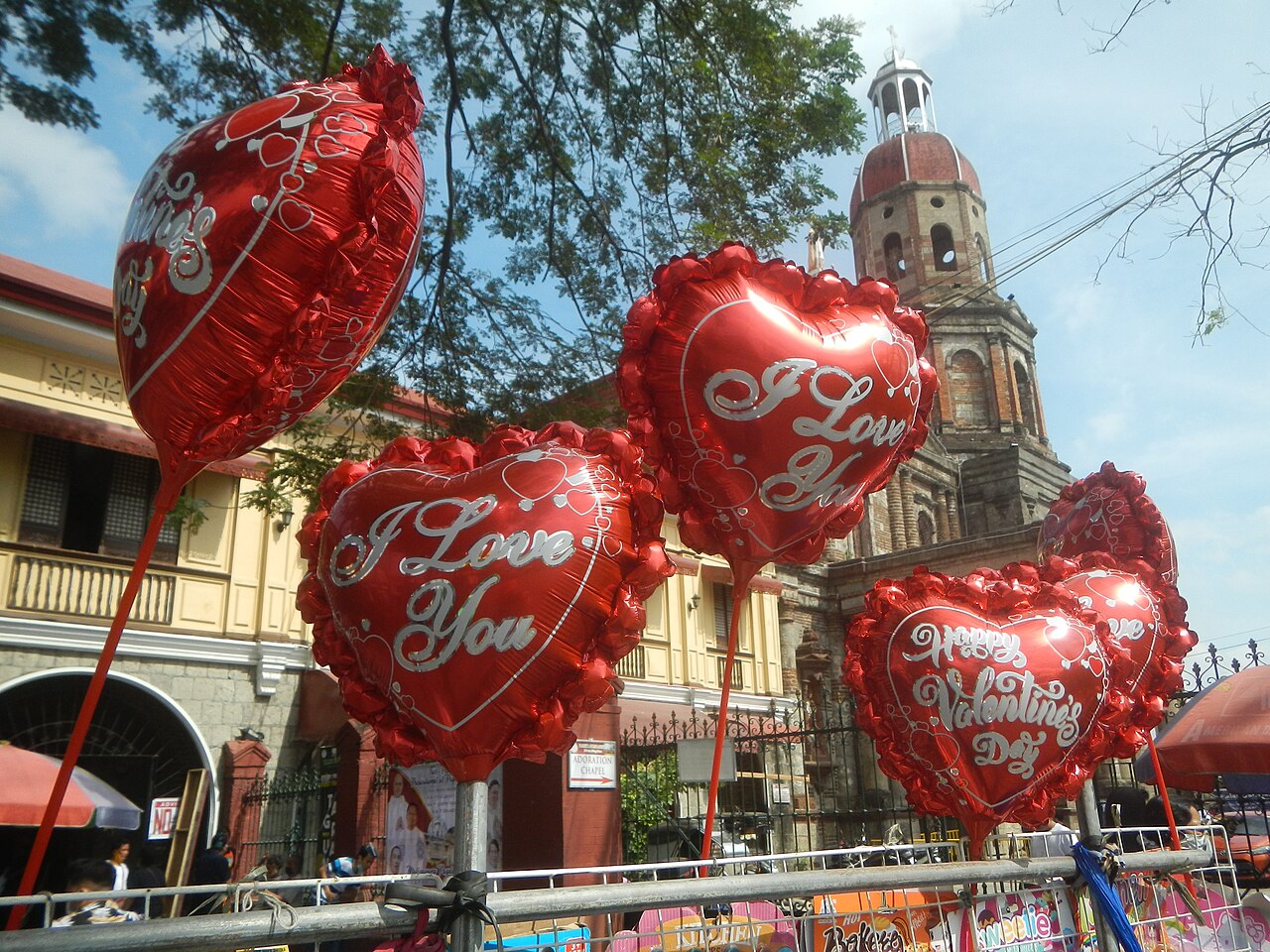 Judgefloro, CC0, Wikimedia Commons
Judgefloro, CC0, Wikimedia Commons
Romania
While Valentine's Day is a popular day for mass weddings in the Philippines, in Romania it has become a rather popular day to get engaged. Although, in Romania it isn't called Valentine's Day—but rather, "Dragobete", and it happens on February 24th instead of the 14th.
But that's not all...
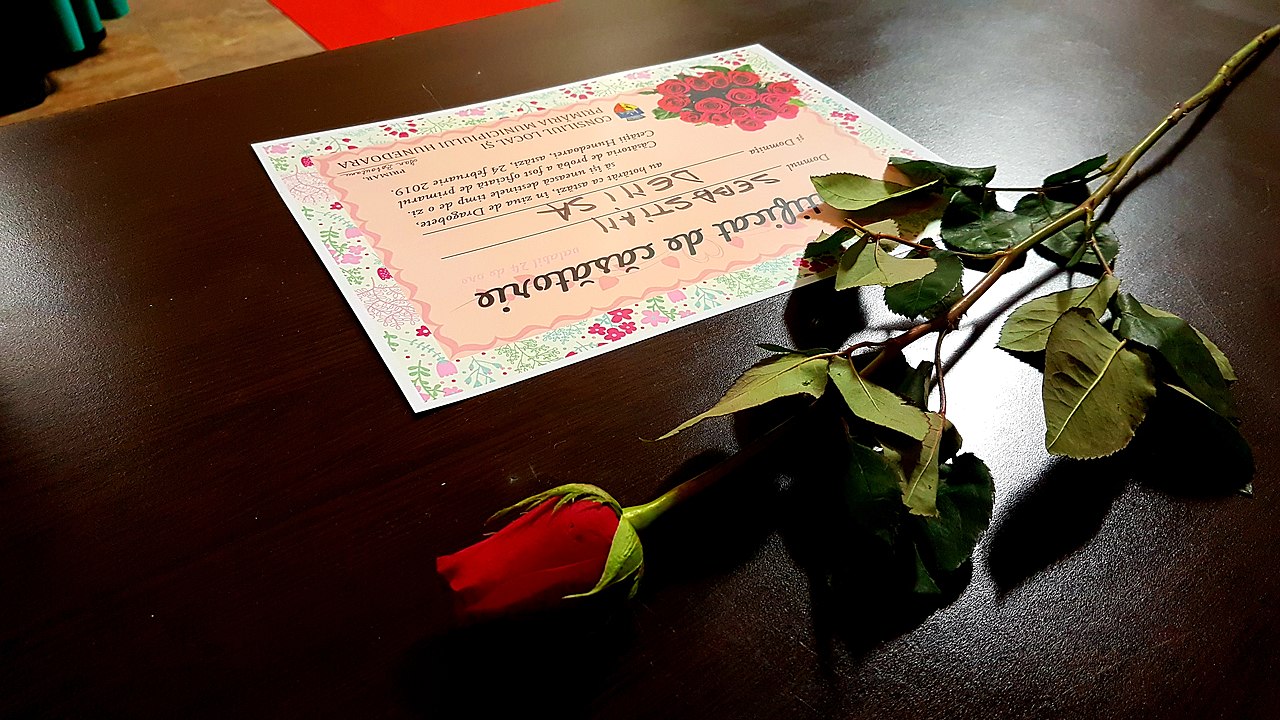 Denisa Bârgău, CC BY-SA 4.0, Wikimedia Commons
Denisa Bârgău, CC BY-SA 4.0, Wikimedia Commons
Romania
There is also a tradition of walking into the forest on this day to pick some of the first springtime flowers and collect snow—which, according to ancient traditions, melt and can be used for healing and magical potions throughout the year.
Ancient Greeks And Romans
Ornithomancy—the practice of reading omens from the actions of birds—was something the ancient Greeks and Romans both participated in on Valentine's Day. They would look at the first bird an unmarried woman saw on the day and, extrapolating from that, determine the kind of man she would marry.
Ancient Greeks And Romans
Swan: A loyal partner for life.
Dove: A kind-hearted person.
Blackbird: A member of the clergy or someone who did spiritual, charitable work.
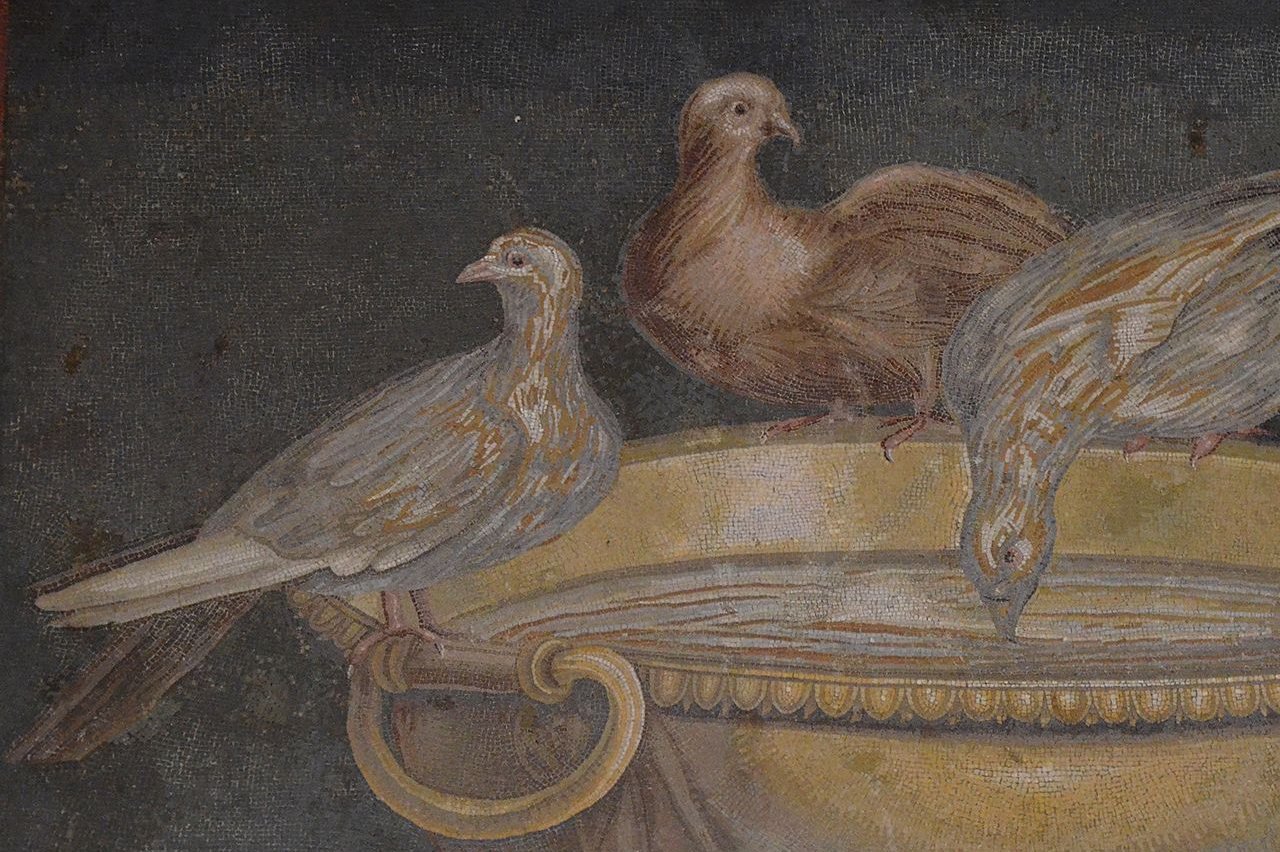 Carole Raddato, CC BY-SA 2.0, Wikimedia Commons
Carole Raddato, CC BY-SA 2.0, Wikimedia Commons
Peru
Like in North America, Peru associates flowers with Valentine's Day—except that it isn't roses they give their sweethearts, it's locally-grown orchids. And it isn't called "Valentine's Day". In Peru February 14th is Día del Amor y la Amistad ("Day of Love and Friendship").
France
They don't do it anymore, but there was a tradition in France called "une loterie d’amour" ("a love lottery") that saw men and women line up in houses across the street from each other and just yell across until they found someone to pair up with. However, if the man wasn't happy with his match, he could just refuse and leave the woman to go try and find another man.
Definitely not as romantic as you might assume given the country's reputation as the country of love.
But wait, there's more.
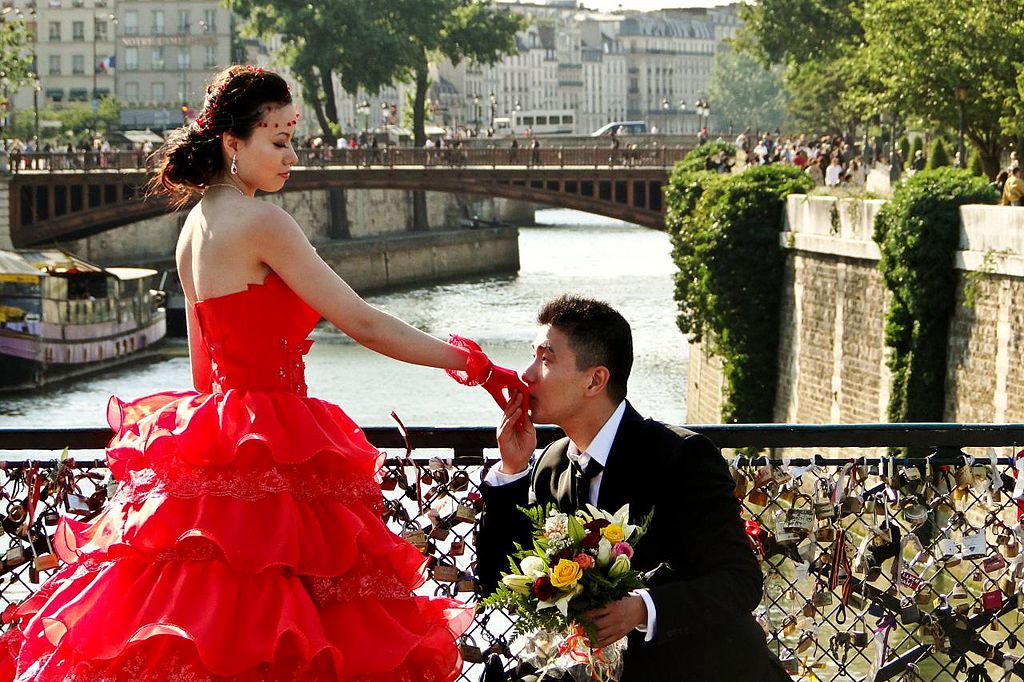 Gus Valentim, CC BY 2.0, Wikimedia Commons
Gus Valentim, CC BY 2.0, Wikimedia Commons
France
After all the yelling, the women who had not found a match would proceed to build these huge bonfires to burn the images of the men who'd rejected them. We can see how things could get a little out of hand with all this—and so did the French government, who eventually banned it all.
Norway
In Norway, the tradition is called "Gaekkebrev"—which basically translates to "joke letters". But don't let the name fool you—it's honestly kinda sweet. You see, these letters are poems written by secret admirers to the object of their affection. The twist is that they don't sign their name on the letter but instead sign it with a dot for each letter in their name.
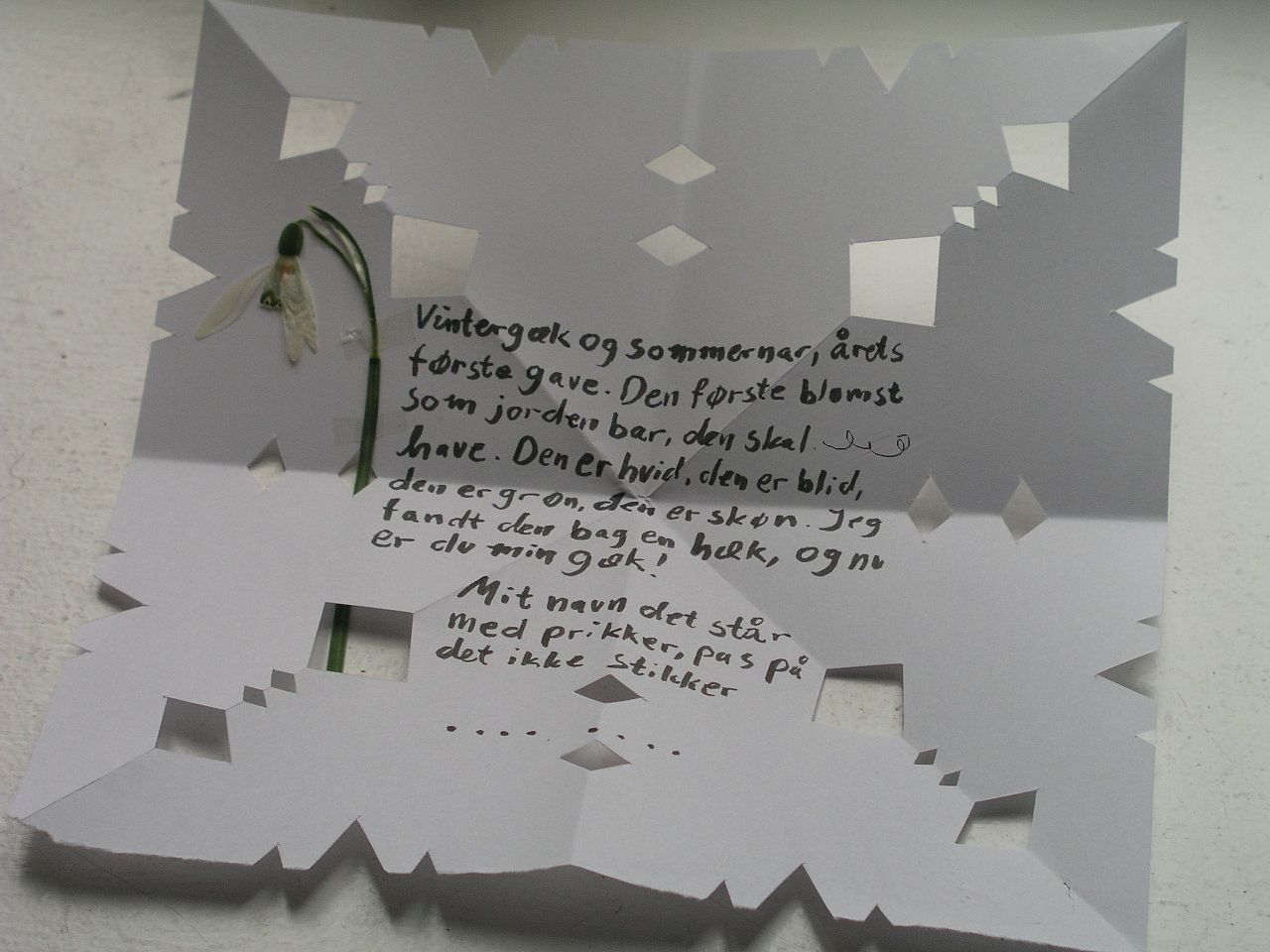 Nillerdk, CC BY-SA 3.0, Wikimedia Commons
Nillerdk, CC BY-SA 3.0, Wikimedia Commons
Norway
Now it's up to the woman who gets the poem to figure out which man sent it to her. And what happens if she gets it right? Well, she gets an Easter egg at Easter from said gentlemen. And if she's wrong? Well, she needs to give him an egg instead.
Bulgaria
In Bulgaria, February 14th isn't just St Valentine's Day, as there's also another saint who the day belongs to—St Trifon, who just happens to be a patron saint of vineyards and winemakers. Okay, we're on board so far...
Bulgaria
On February 14th, Bulgarians celebrate Trifon by holding a blessing of the vines ceremony at a vineyard—meant to ensure a good harvest in the year ahead. They feast and drink (wine, of course).
 Azikatanov, CC BY-SA 4.0, Wikimedia Commons
Azikatanov, CC BY-SA 4.0, Wikimedia Commons
Victorians
You may have heard the expression, "no glove, no love". Well, back in the Victorian days, that expression (had it been used) would've meant something very different—and much more literal. We're talking about an actual glove here, folks.
Victorians
You see, while gifting a pair of gloves on Valentine's Day was commonplace in the 17th century, Victorian men put their own spin on it by sending their valentine one single glove. The idea being that if she returned his feelings she would signal it by wearing that one glove on Easter Sunday.
South Africa
Some South African women literally wear their heart on their sleeve on Valentine's Day. Okay, well, not literally—as it isn't their actual heart. But they do pin a heart with the name of a loved one to their sleeve and wear it around all day.
Finland And Estonia
Finland and Estonia are two very different countries—but when it comes to February 14th they have the same tradition (just with different names). Called "Ystävän Päivä" in Finland and "Sõbrapäev" in Estonia, the day is more about friendship than romantic love and people give gifts and cards that say "Happy Friends Day".
Czech Republic
The Czechs wait till the weather is a little nicer to celebrate their love for each other. Then, on May 1st (rather than February 14th), couples will head out to kiss under a blooming cherry tree. It is said that these kisses under the tree help keep the couples beautiful and radiant.
 Helena Zezulkova, Shutterstock
Helena Zezulkova, Shutterstock
Iraq
Iraqi Kurds celebrate with decorated apples on Valentine's Day—meant to represent the original love story, that of Adam and Eve. But while the whole apple thing didn't turn out so good for Adam and Eve, in this "feast of love" celebration, the apples are believed to bring love and prosperity.
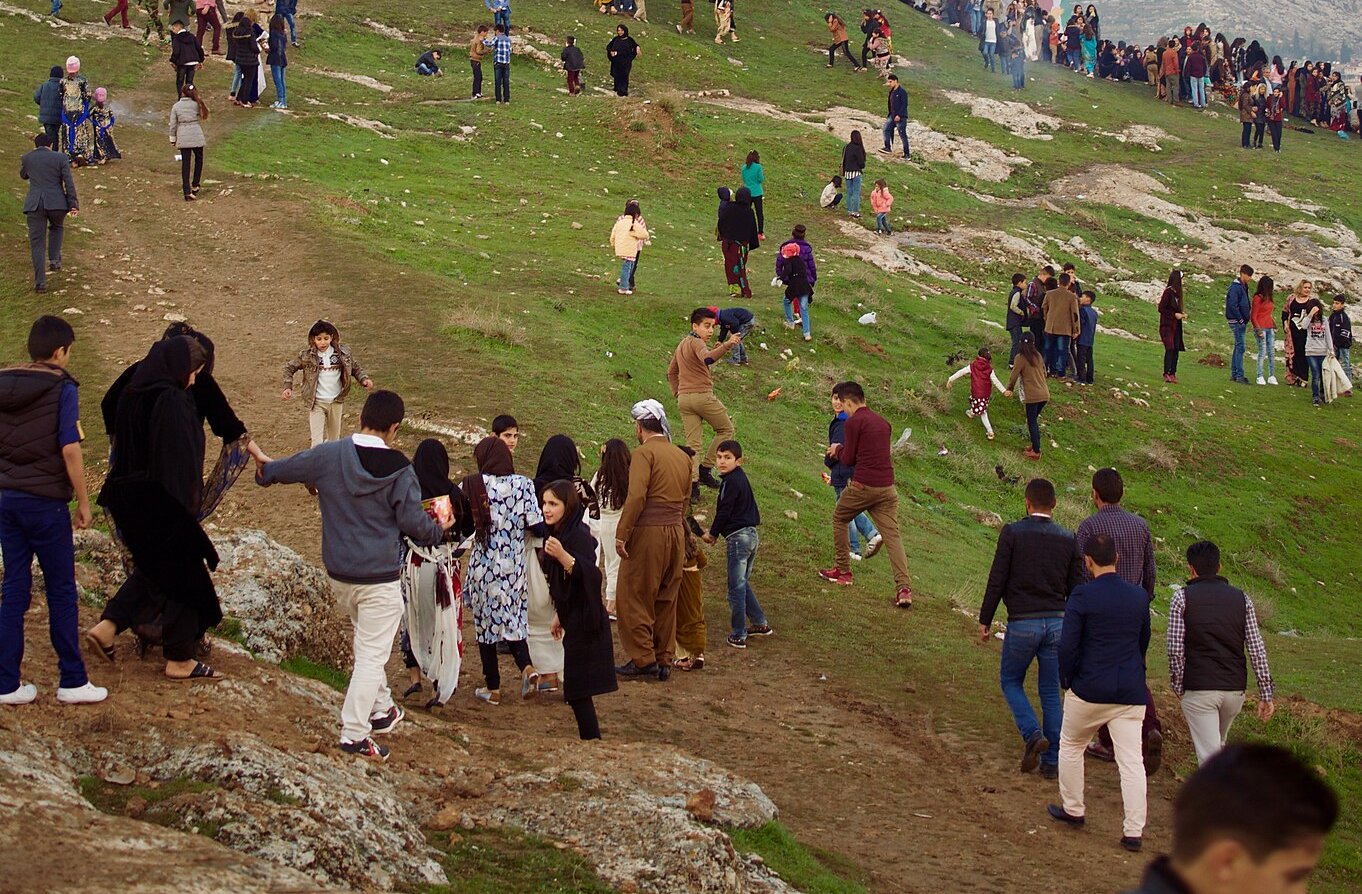 Levi Clancy, CC BY-SA 4.0, Wikimedia Commons
Levi Clancy, CC BY-SA 4.0, Wikimedia Commons
England
We're going back to the 18th century for this one, when women in rural parts of the country would attach bay leaves to their pillows before going to sleep the night before Valentine's Day—believing that this would help them dream of their future husband.
 Annie Ernesto, CC BY-SA 4.0, Wikimedia Commons
Annie Ernesto, CC BY-SA 4.0, Wikimedia Commons
Victorians
Going back to the Victorians, this one sounds more like a Halloween tradition, but alas it was something younger people did for Valentine's Day. They would go to cemeteries on Valentine's Day—and at midnight, look around for omens as to who they would fall in love with.
 Alan Murray-Rust, CC BY-SA 2.0, Wikimedia Commons
Alan Murray-Rust, CC BY-SA 2.0, Wikimedia Commons


